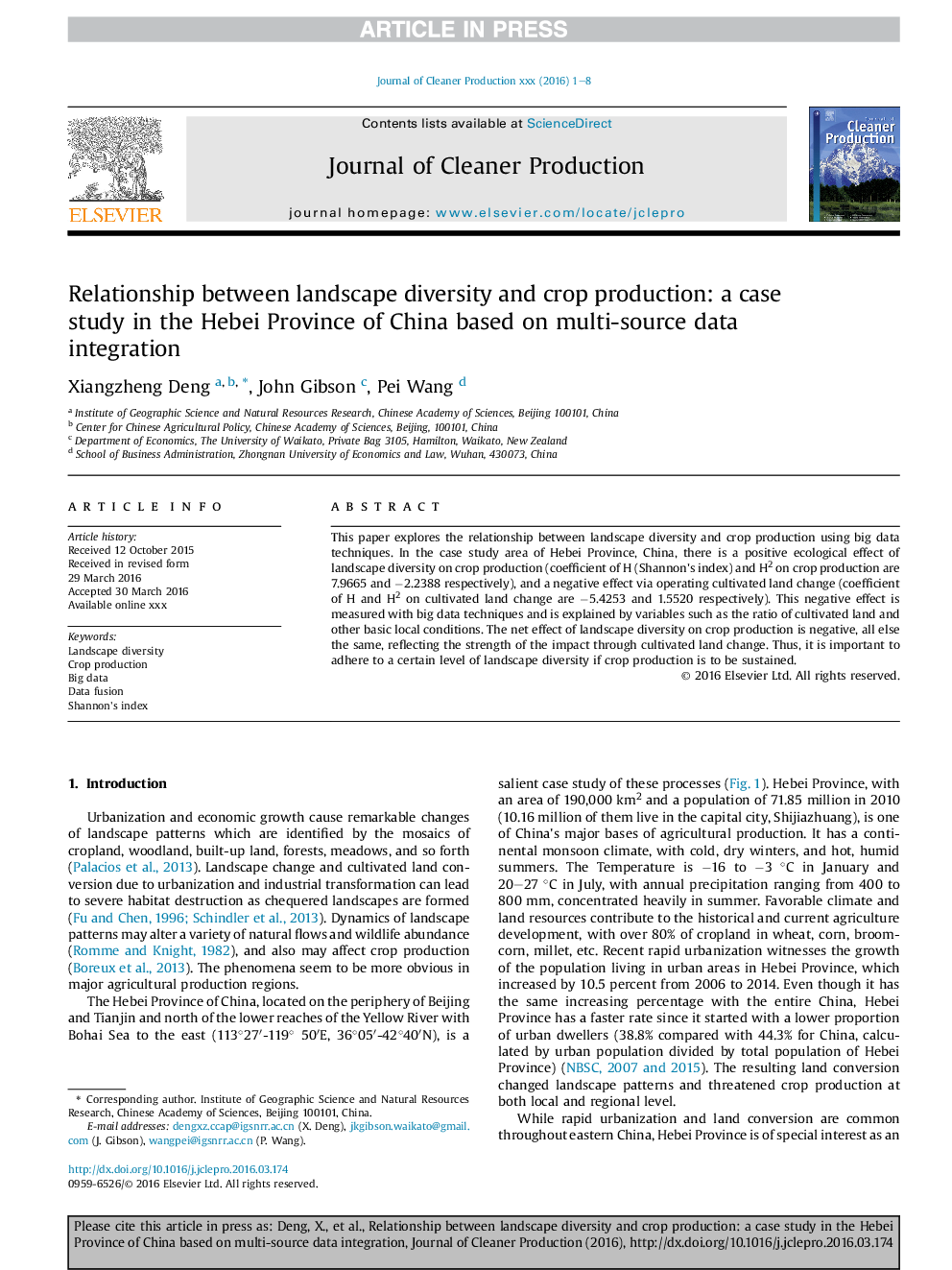| Article ID | Journal | Published Year | Pages | File Type |
|---|---|---|---|---|
| 5481258 | Journal of Cleaner Production | 2017 | 8 Pages |
Abstract
This paper explores the relationship between landscape diversity and crop production using big data techniques. In the case study area of Hebei Province, China, there is a positive ecological effect of landscape diversity on crop production (coefficient of H (Shannon's index) and H2 on crop production are 7.9665 and â2.2388 respectively), and a negative effect via operating cultivated land change (coefficient of H and H2 on cultivated land change are â5.4253 and 1.5520 respectively). This negative effect is measured with big data techniques and is explained by variables such as the ratio of cultivated land and other basic local conditions. The net effect of landscape diversity on crop production is negative, all else the same, reflecting the strength of the impact through cultivated land change. Thus, it is important to adhere to a certain level of landscape diversity if crop production is to be sustained.
Related Topics
Physical Sciences and Engineering
Energy
Renewable Energy, Sustainability and the Environment
Authors
Xiangzheng Deng, John Gibson, Pei Wang,
